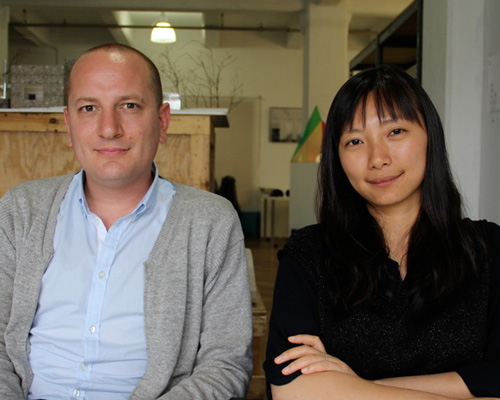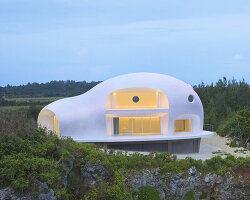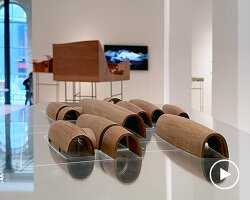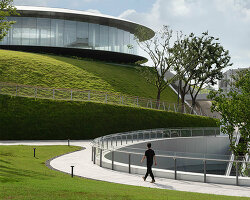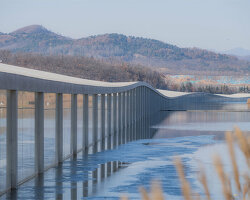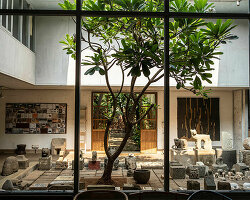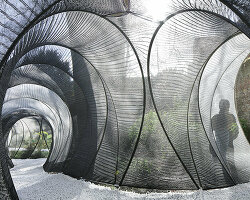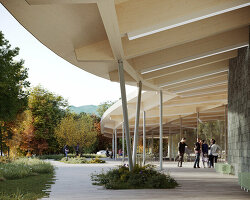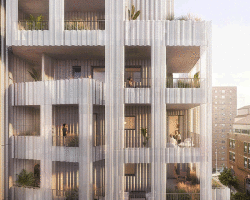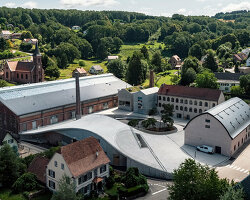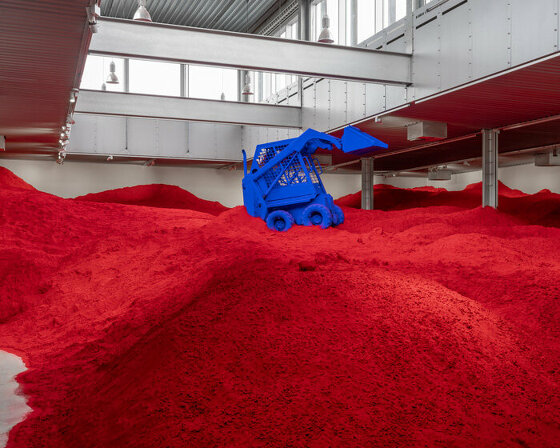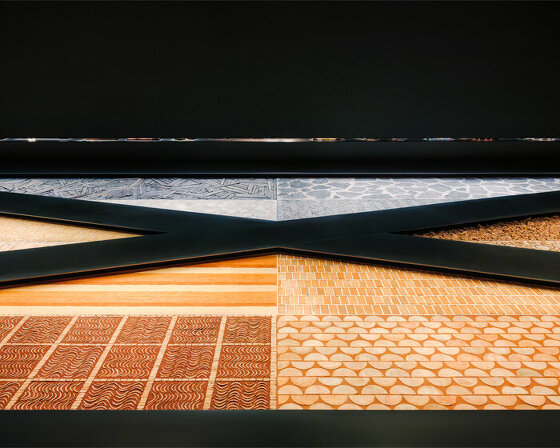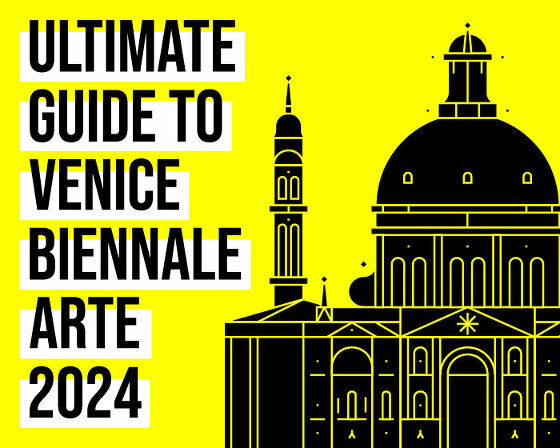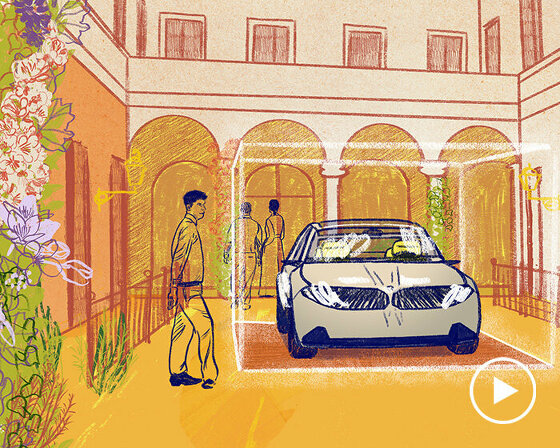interview with architects jing liu and florian idenburg of SO-IL florian idenburg and jing liu of SO-IL portrait © designboom
— designboom met with jing liu and florian idenburg of SO-IL in their brooklyn, new york studio on may 21st, 2012. —
what is the best moment of the day?
FI: just after I bring my daughter to school.
JL: when I wake-up after putting the kids to bed.
what kind of music do you listen to at the moment?
FI: I’m listening to a group we just discovered; a group we commissioned to write a piece for an installation we did in queens. they’re called ‘das racist’. they’re rappers but from india and south america but they grew up in queens. so it’s rap, ya.
JL: it’s a pity. I was talking to my friend recently of how little music I listen to these days. the last time I really listened to music was in school. we’re always in the environment of talking with people, or talking with staff or talking with kids. I really would like to have silence and not have to listen to music.
do you listen to the radio?
mostly internet-streamed radio. we always have young and new staff and interns and often they become the ones that play the radio so we stay sort of up to date on what is happening.
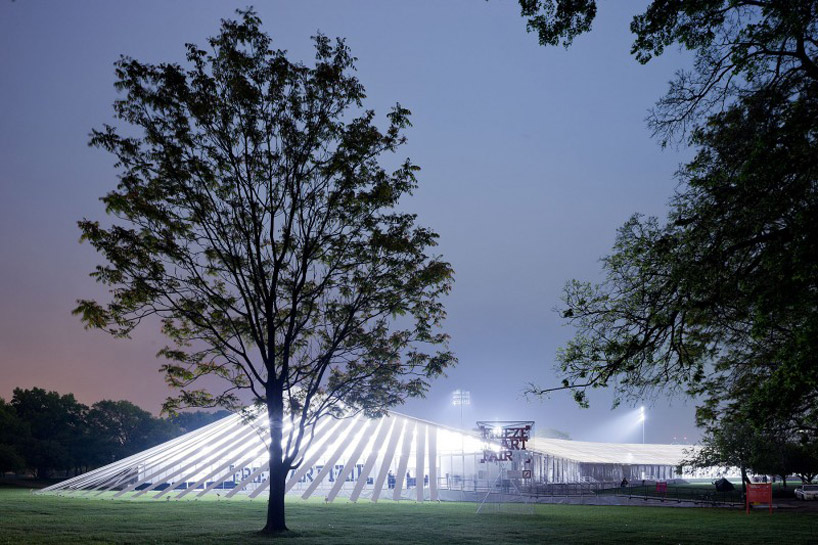 ‘frieze art fair NYC’ in new york, 2012 image © iwan baan
‘frieze art fair NYC’ in new york, 2012 image © iwan baan
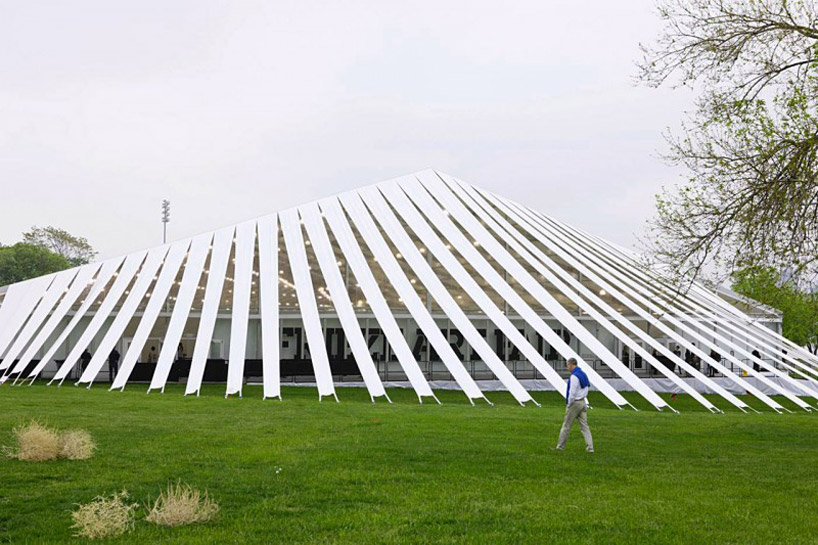 ‘frieze art fair NYC’ in new york, 2012 image © iwan baan
‘frieze art fair NYC’ in new york, 2012 image © iwan baan
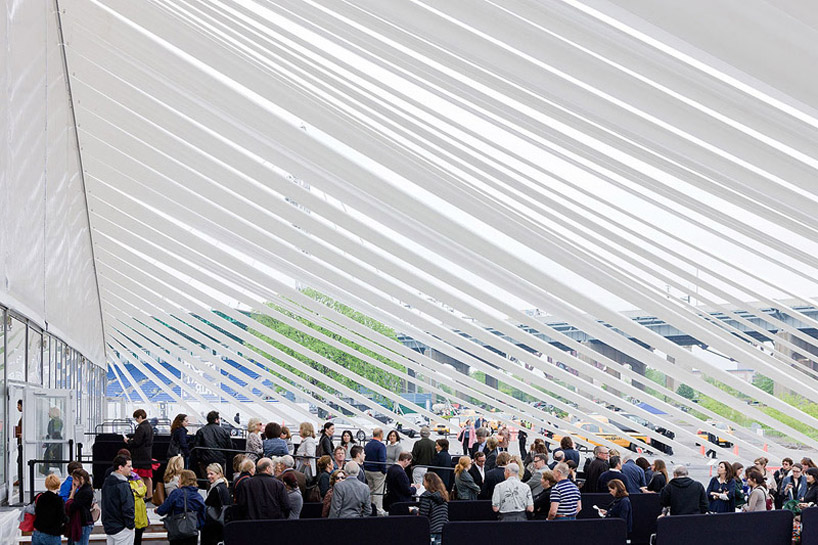 ‘frieze art fair NYC’ in new york, 2012 image © iwan baan
‘frieze art fair NYC’ in new york, 2012 image © iwan baan
what books do you have on your bedside table?
JL: I just finished the biography of the new, soon-to-be chinese premier, just to understand the political future of china. I finished it last night and now I think I’m going to start a biography of liu xiaobo, the nobel peace prize winner who is in prison. I thought I would look at the two startlingly different characters in the political system.
FI: I’m always reading, my problem is that I read a couple of books at the same time, and so they sort of get stuck halfway. one is called ‘failure’ (editor lisa le feuvre) which is basically about the idea of failure as a creative idea — as a productive idea. another book is called ‘subliminal’ (leonard mlodinow) which is essentially about how our unconsciousness works and how it makes decisions for us.
do you read design / architecture / fashion magazines?
not really. we write now and then for magazines, and then we get them sent to us and we leaf through them, but we don’t have a subscription to anything. we have quite a few journalist friends, writers who are on facebook… whenever they write something, we make a point of reading it.
where do you get news from?
mostly the internet. for general news I read the new york times. design news through blogs, and uh, designboom and the architect’s newspaper.
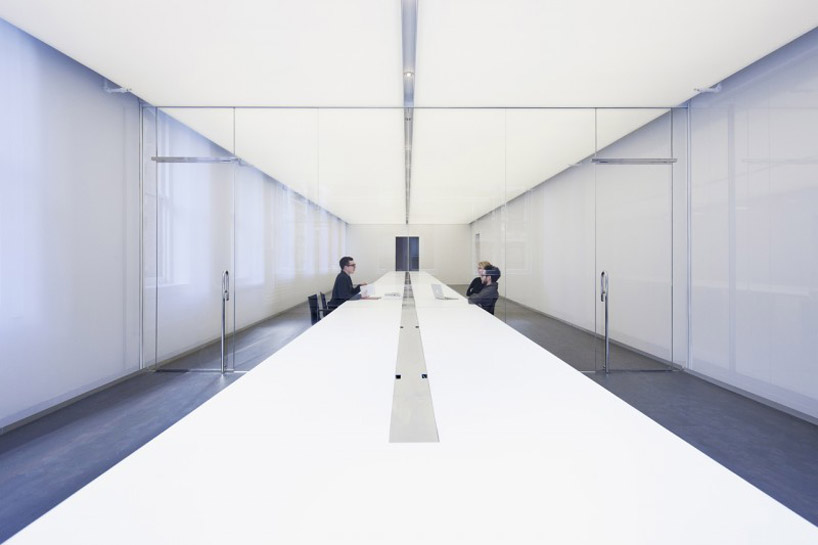 ‘logan’ in new york, 2012 image © naho kubota
‘logan’ in new york, 2012 image © naho kubota
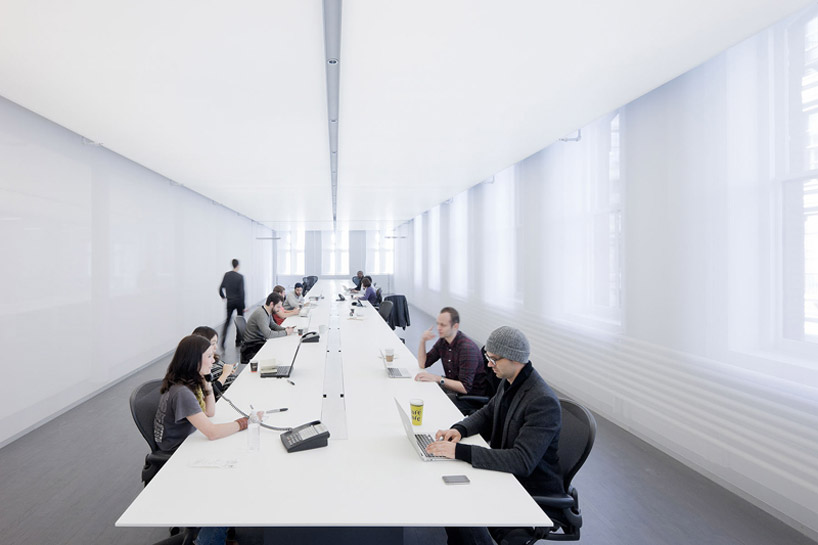 logan’ in new york, 2012 image © iwan baan
logan’ in new york, 2012 image © iwan baan
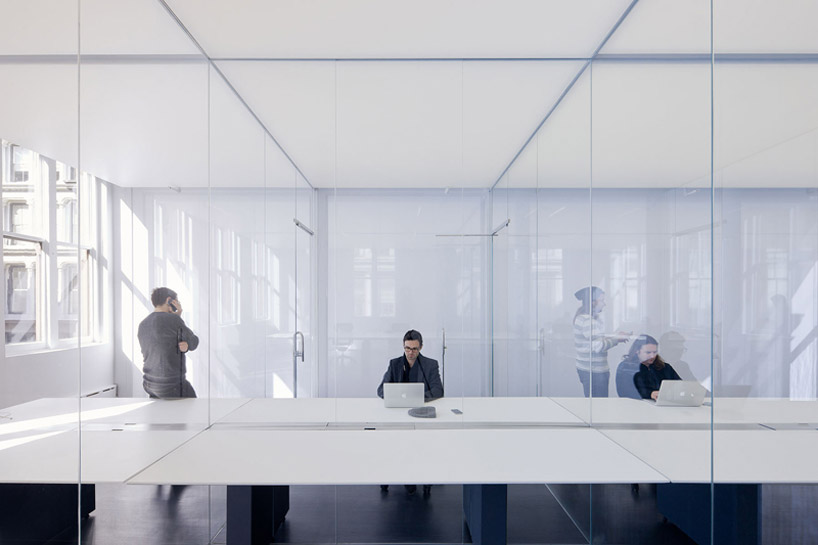 ‘logan’ in new york, 2012 image © iwan baan
‘logan’ in new york, 2012 image © iwan baan
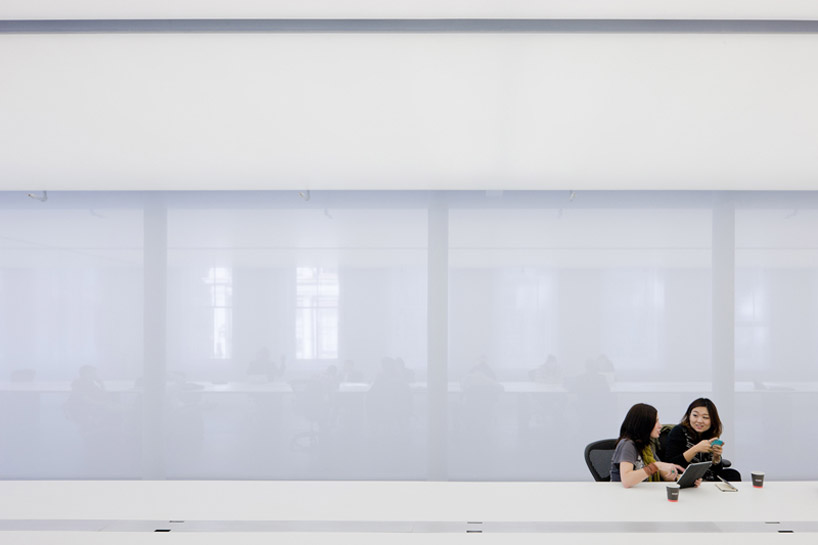 ‘logan’ in new york, 2012 image © iwan baan
‘logan’ in new york, 2012 image © iwan baan
I assume you notice how women dress. do you have any preferences?
FI: I’m not sure if I can articulate them. I’m very visual so maybe it’s more, um… I worked 8 years at SANAA in japan and they’re obviously – well the japanese have a very particular fashion sense, and sejima has a very strong fashion interest. some subtlety and sort of a good detail, but something that is maybe a bit awkward.
in a way comme des garçons can do that very well, but it doesn’t necessarily look good on everybody, so I think it depends. I think people who are very in tune with what works with their own body is what I prefer. people who know what they’re doing basically.
JL: I think that 99 per cent of the time I don’t feel like wearing comme des garçons. I think it overpowers me, or I have to adapt into that character.
what kind of clothes do you avoid wearing?
JL: I can be quite adventurous sometimes. it really depends on the day. I have a closet of quite a different variety and I can never really predetermine what I am going to wear tomorrow. it’s when I wake up I feel like, … ‘okay, this is what I feel like today.’ everyone has rainy days and sunny days and casual days and formal days.
FI: well I think I have things that jing would like me not to wear but … (they laugh). I dress quite straightforward. I have tried things that are more extravagant, but typically I cannot take myself too serious at that moment, so what I have now is pretty controlled. I like to dress up though. I would wear a pair of lederhosen.
JL: he likes halloween.
 ‘antwerp province hall’ in antwerp, belgium 2012
‘antwerp province hall’ in antwerp, belgium 2012
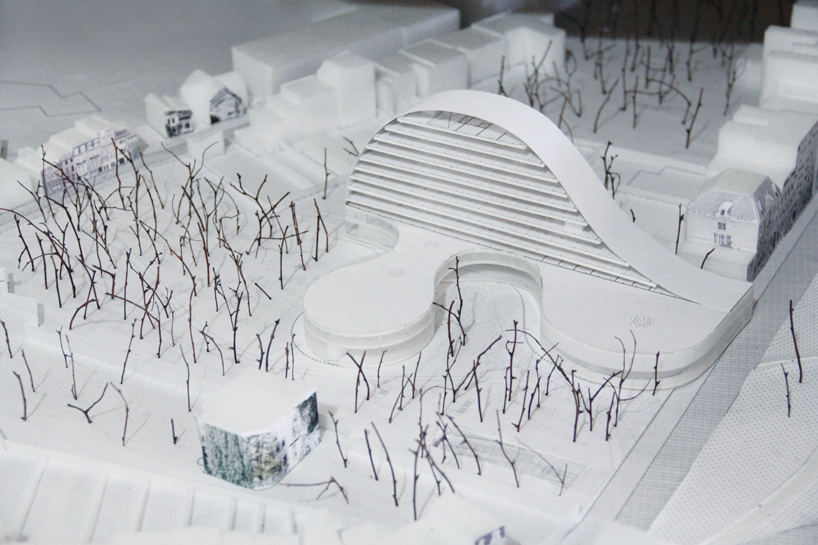 scale model of the ‘antwerp province hall’, 2012 image © designboom
scale model of the ‘antwerp province hall’, 2012 image © designboom
do you have any pets?
FI: jing has killed about 50 fish in the last month in our house!
JL: not in the last month. no I have not ever had a pet in my life. like a big one. I’ve had little caterpillars, fish and stuff, but no, not big ones.
FI: it would be nice, as we have two kids, but it’s hard in the city to have pets actually. especially when you run an architectural office and live in new york. also it’s difficult when you travel and we have to travel quite a bit. even with fish we have to buy those automatic feeders and it doesn’t work for long periods of time.
when you were a child, did you want to become an architect?
FI: when I was 16 I decided to be an architect. I had to choose between a musician – I played the drums – and architecture. I thought as a musician at 32 you’re sort of a sad figure if you haven’t succeeded, but as an architect you can be promising until you die. now sometimes I realize I should have first become a musician and then an architect.
JL: I’m not completely sure if I want to be an architect for the rest of my life. I think for me it’s less about what profession I’m in and more about using that discipline to express or investigate certain topics or issues that I’m interested in society. in the beginning I wanted to be a writer, and I think that in some sense that architecture is a form of language that you can use to compose a certain narrative that you are interested in.
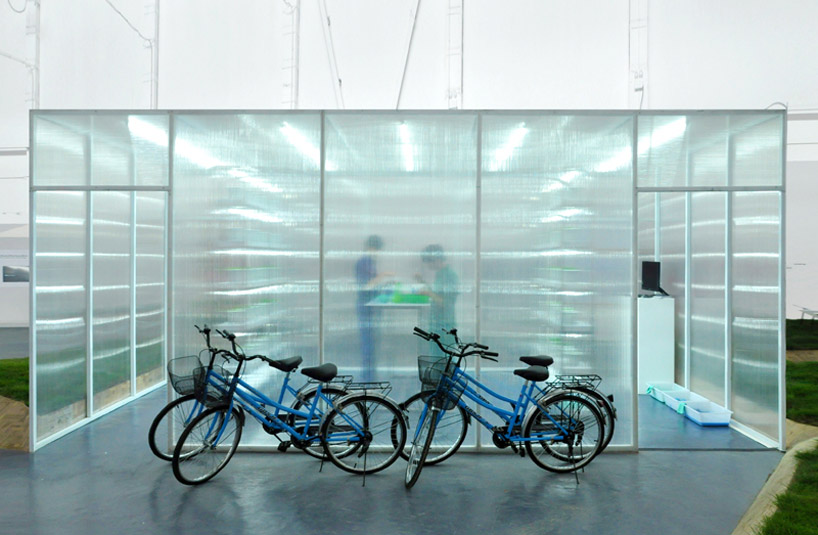 ‘pollination’ installation in chengdu, china, 2011
‘pollination’ installation in chengdu, china, 2011
 ‘pollination’ installation in chengdu, china, 2011
‘pollination’ installation in chengdu, china, 2011
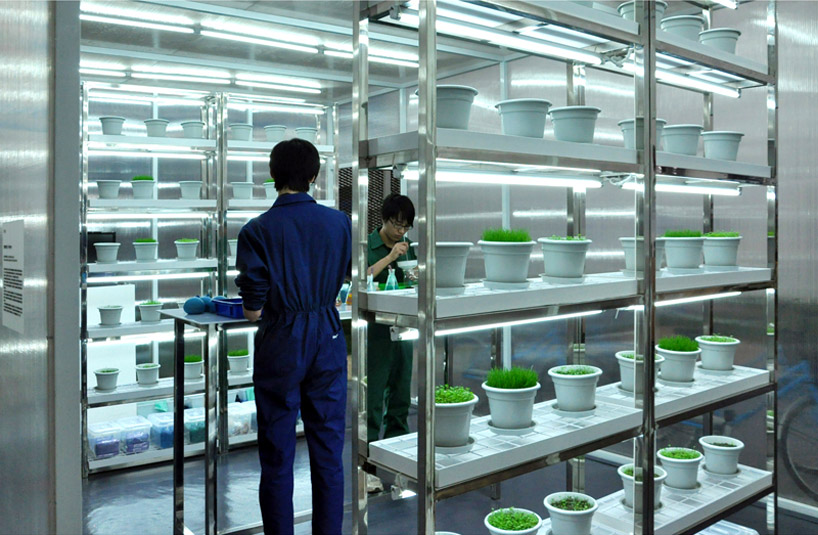 ‘pollination’ installation in chengdu, china, 2011
‘pollination’ installation in chengdu, china, 2011
where do you work on your designs and projects?
wherever we are. 24/7.
do you discuss your work with other designers?
I think most of the young offices here (NY) come out of the big schools and there has been a moment where people got really fascinated by the computer and its ability to create new forms. I think we’re past this era and it has left a few offices who are still working within it, but a larger cultural context so they’re not interested in purely duality, but the relation between machine and society… firms like MOS — michael meredith and hilary sample. they are sort of our contemporaries that we exchange with. work AC we know, and we share. we’re going to see (alvaro) siza lecture next week here at the MoMA, we’re very excited about that.
DB: do you converse with any chinese architects?
JL: I don’t go to china often enough. just like twice a year. I know a few famous practicing architects, but everybody’s so busy there, working and practicing, that just by seeing them twice a year you don’t really engage in a deeper conversation… and I don’t even know if there is a deeper conversation.
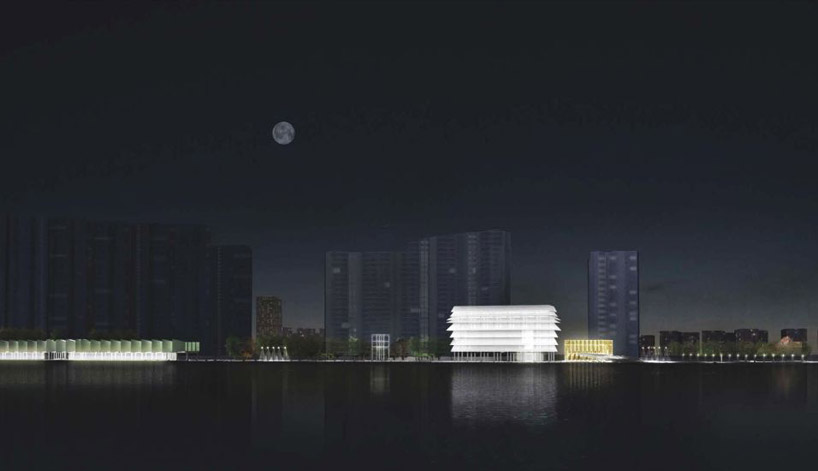 ‘shanghai meicang art district’ in shanghai, china, 2011
‘shanghai meicang art district’ in shanghai, china, 2011
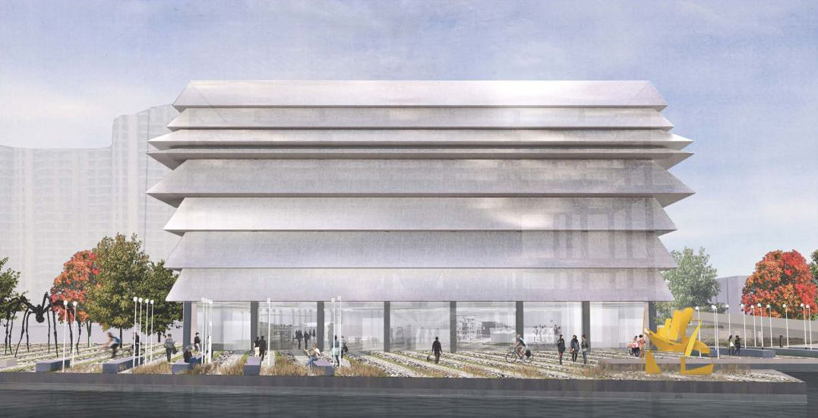 ‘shanghai meicang art district – silo building’ in shanghai, china, 2011
‘shanghai meicang art district – silo building’ in shanghai, china, 2011
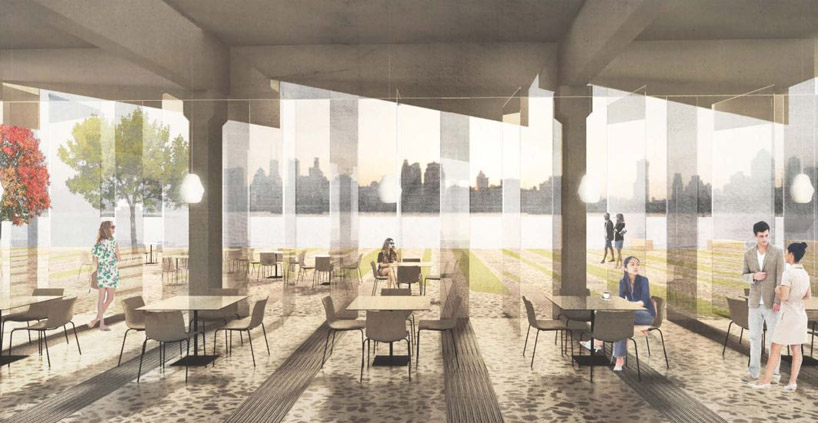 ‘shanghai meicang art district’ in shanghai, china, 2011
‘shanghai meicang art district’ in shanghai, china, 2011
describe your style, like a good friend of yours would describe it.
JL: I think that some of the words that our friends would say are clarity in the work and a clarity of thought. and ‘beautiful’ maybe.
FI: I think it’s fair to say we are interested in the threshold. the idea of edge and its material, or dematerialization. and also the effect that that creates. light is obviously a part of that because it becomes a filter in some way, but at the same time, I don’t think we never conceive of a project purely through a material or an effect. it’s mostly a thought first and then it needs to be translated in form and material. so it’s never a material fascination that would drive a project. always, more a thought initially.
please describe an evolution in your work, from your first projects to the present day.
JL: I think we’re becoming a little bit more um considered. maybe? I think in the beginning you just throw things out there and see what sort of sticks. you have all these ideas that you always wanted to try and then you apply them and now that we have these out of our system we can search a little bit more carefully for solutions. I think we’ve become a little bit more relaxed, basically. no?
FI: ya. in the beginning you’re very carefully trying to be very explicit about what you want to achieve. we have seen through realizing things that the interpretation of people can be very different from your initial intention. in the beginning, I thought that there’s something wrong if your own intention is different than the way that it is being read. now we start to enjoy the fact that stuff can be interpreted in many different ways and that people look at things in different ways. I think that this is becoming more and more of a project within itself – the idea of creating something that doesn’t necessarily have to be explicit.
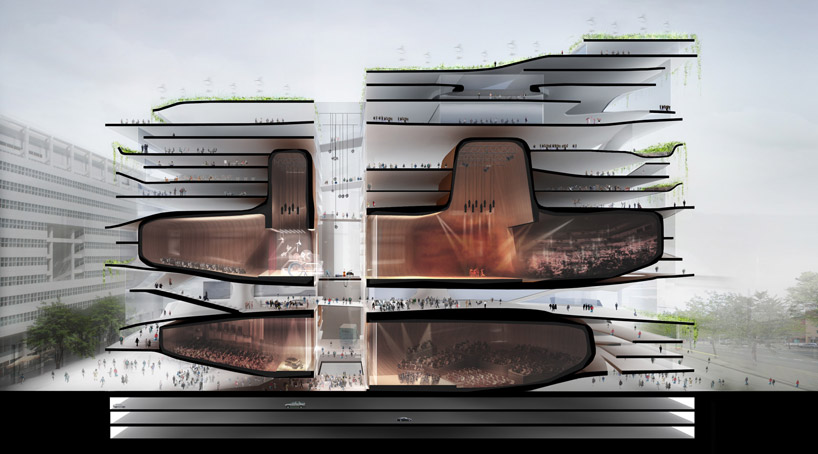 ‘XYZ dance and music center’ in the hague, the netherlands, 2010
‘XYZ dance and music center’ in the hague, the netherlands, 2010
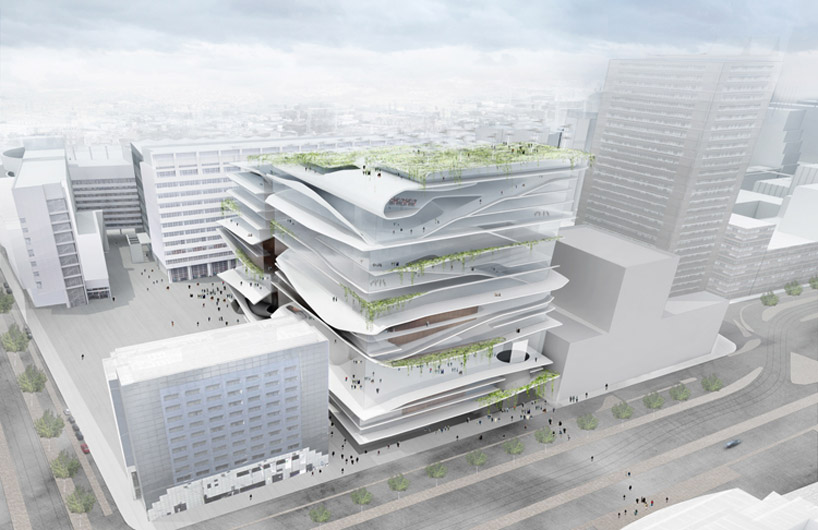 ‘XYZ dance and music center’ in the hague, the netherlands, 2010
‘XYZ dance and music center’ in the hague, the netherlands, 2010
what project has given you the most satisfaction?
JL: we’re four years old, but if you look at our portfolio I think we have gotten quite a bit of work that’s very challenging. as a young office that means we had to basically step up to the plate and really stretch ourselves fully. that’s why I think we have properly learned from every project.
FI: we are very emotionally invested in projects and so when they succeed it’s extremely satisfying, and when they don’t succeed we can be really depressed.
how many didn’t succeed, do you have a portfolio also of the failed projects?
FI: we can show you quite a few.
JL: I think it definitely reaches a broader audience when it gets realized and because of that audience it also feeds back to you in a much extensive way.
FI: well, we’re also architects who don’t necessarily think that everything needs to be built. especially being in the US where there is sort of very ‘strong academic, history of paper’ architecture… we do enjoy if we can actually get buildings fabricated. anyway even if it just stays small or as paper thing it kind of makes sense.
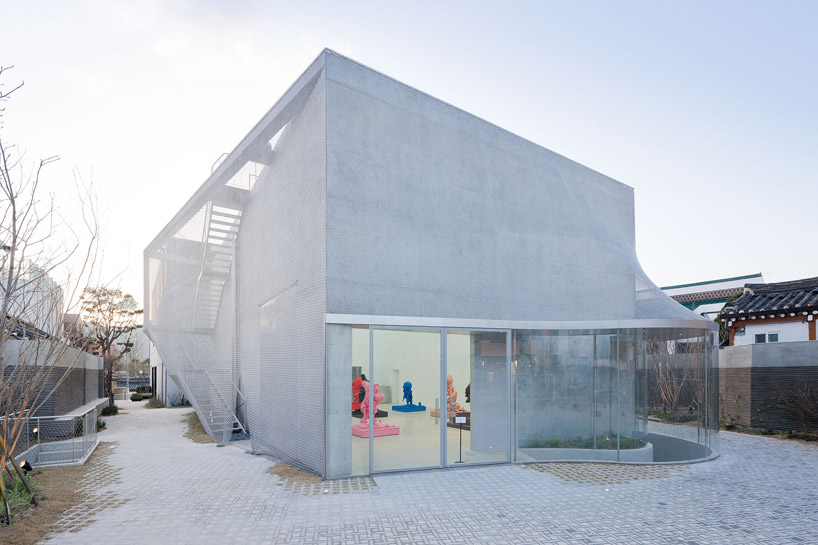 ‘kukje art center’ in seoul, south korea, 2012 image © iwan baan see designboom’s coverage of this project here
‘kukje art center’ in seoul, south korea, 2012 image © iwan baan see designboom’s coverage of this project here
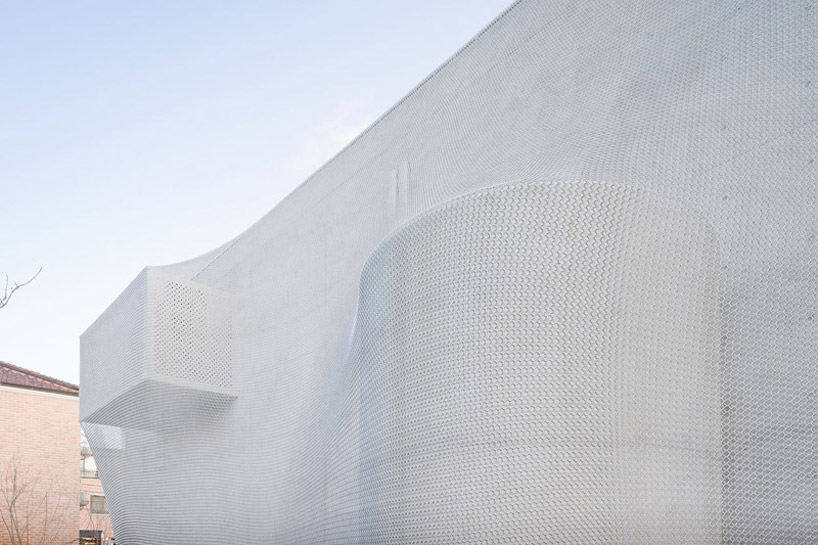 ‘kukje art center’ in seoul, south korea, 2012 image © iwan baan
‘kukje art center’ in seoul, south korea, 2012 image © iwan baan
DB: you just finished a project for the kukje art center in seoul, south korea. how do you work on artistic subjects through architectural materials and the design processes?
JL: I think the subjects that are shared between the art and the architecture world are often quite similar. I see the same subject that we’re interested in, but the artist’s way of approaching it is very different. we would never be able to do it that way.
FI: yes, the strength of architecture lies on a completely different ground.
JL: often the art pieces are more provocative and I think architecture needs to be constructive.
FI: an artist’s work can just raise a question – just putting the issue out there. but as an architect, you also have to provide an answer.
JL: or at least a suggestion, a possibility of an answer — rather than just provoking.
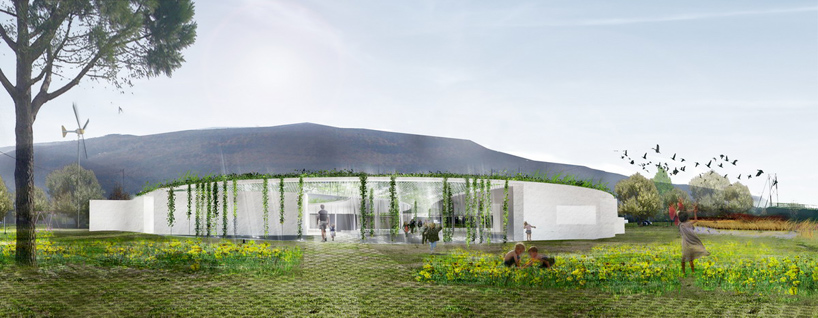 ‘nursery school’, prato, italy – competition proposal 2008
‘nursery school’, prato, italy – competition proposal 2008
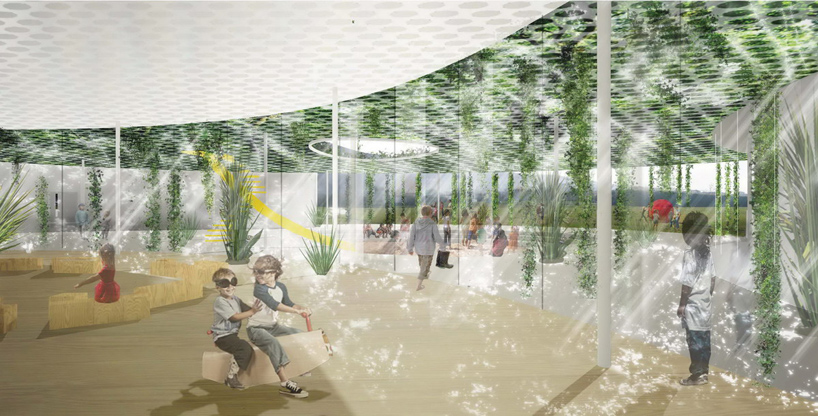 ‘nursery school’, prato, italy, 2008
‘nursery school’, prato, italy, 2008
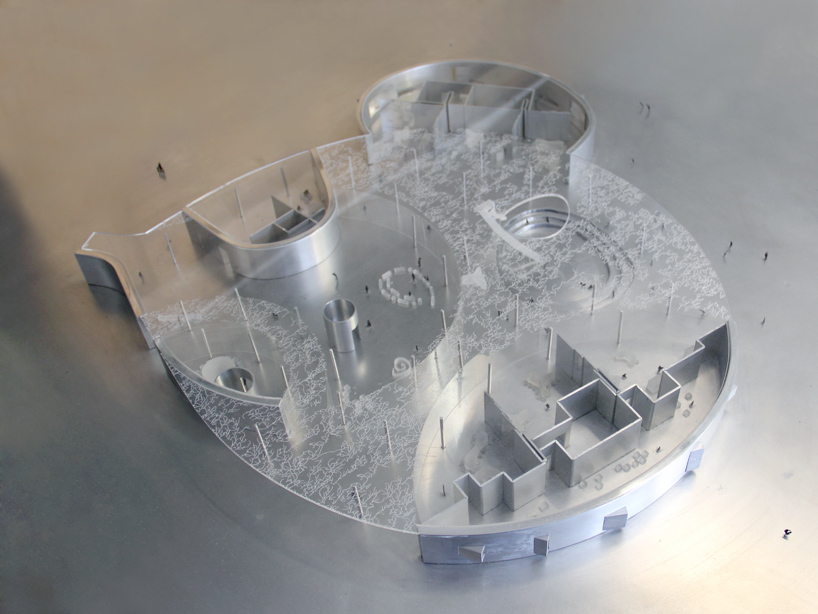 scale model of ‘nursery school’, prato, italy, 2008 image © designboom
scale model of ‘nursery school’, prato, italy, 2008 image © designboom
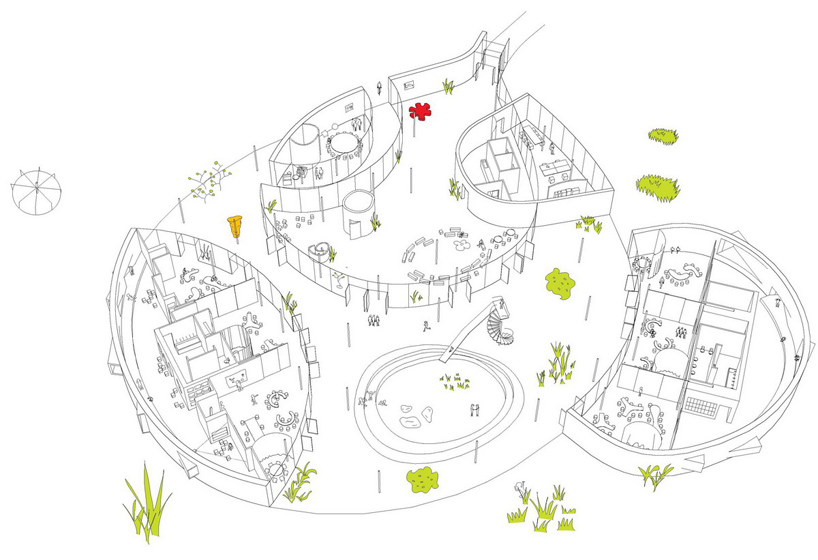 plan of ‘nursery school’, prato, italy, 2008
plan of ‘nursery school’, prato, italy, 2008
is there something you would like to do?
FI: we would like to do an educational building. in a young age, your environment has a big effect on you. our first project was a competition for a nursery school in prato in italy. I still think it was a good project, the model is right here (points behind him).
JL: we’ve been to quite a few museums and galleries that we like but have not been to a school that we fully admire yet (both laugh).
FI: I think the one thing we’re really hoping to do which we’ve worked on for a year and a half is a communal living space for ourselves and for some other people here in the city. we had to think through the financing and the whole legal structures. two interns from the columbia (university) real estate program came here and helped us with the financial models. unfortunately until now, we have not been able to find any bank who’s willing to give us money.
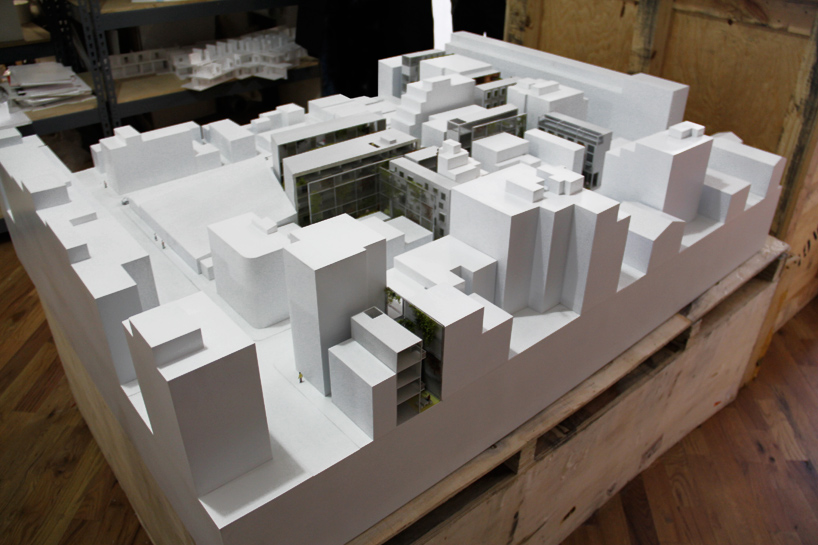 model of a communal living space proposal in new york (on going) image © designboom
model of a communal living space proposal in new york (on going) image © designboom
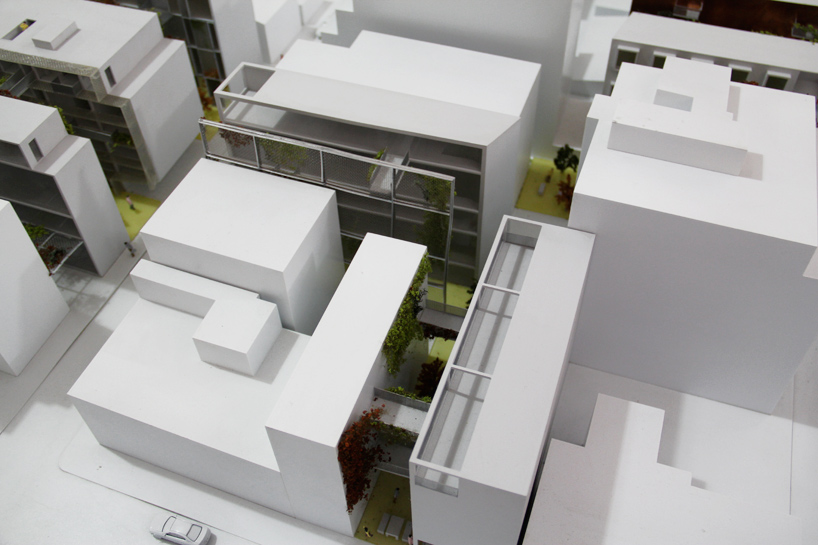 detail of the communal living space which emphasizes more shared / social spaces (on going) image © designboom
detail of the communal living space which emphasizes more shared / social spaces (on going) image © designboom
a social utopia?
JL: in new york, the real estate development is very much based on profit model, of course. especially in the bloomberg (new york mayor) age… it’s all privatized, every inch of the city. we’re trying to find a way to unify the few varied private interests and make it somewhat a collective of private interests. it’s a model that’s a little bit different from the developer’s model and we’re having a hard time convincing the banks to believe in that new model.
FI: normally what a developer tries to do is to minimize the amount of common space, the shared space within a building. you just squeeze it into a simple corridor. 30 per cent of the earth’s surface is shared. we want to keep the units small but have larger shared spaces. we’re sort of continuously adjusting this model but we have not been able to make it succeed.
JL: the bank would only want one person to provide the risk management and it obviously leads to the developer’s main stake in the project. the ability and openness to take risks or share the risks is much lower here in the US than in some other parts of the world.
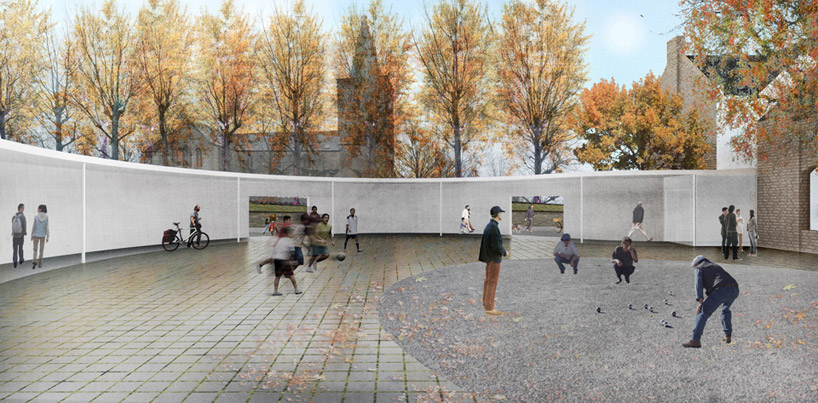 ‘linked’ in wulpen, the netherlands, 2011
‘linked’ in wulpen, the netherlands, 2011
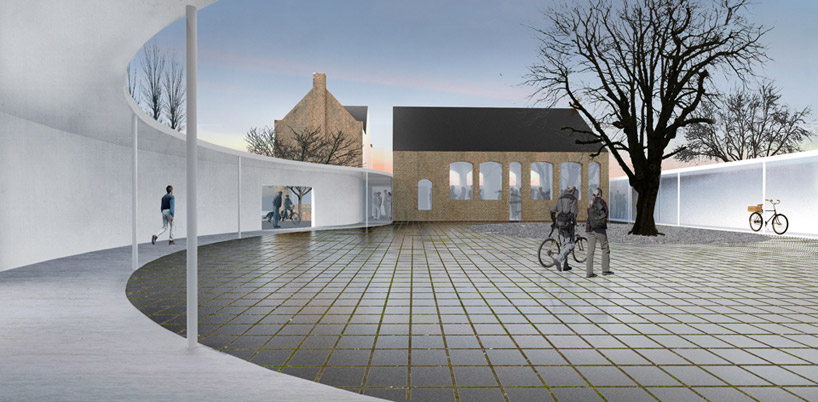 ‘linked’ in wulpen, the netherlands
‘linked’ in wulpen, the netherlands
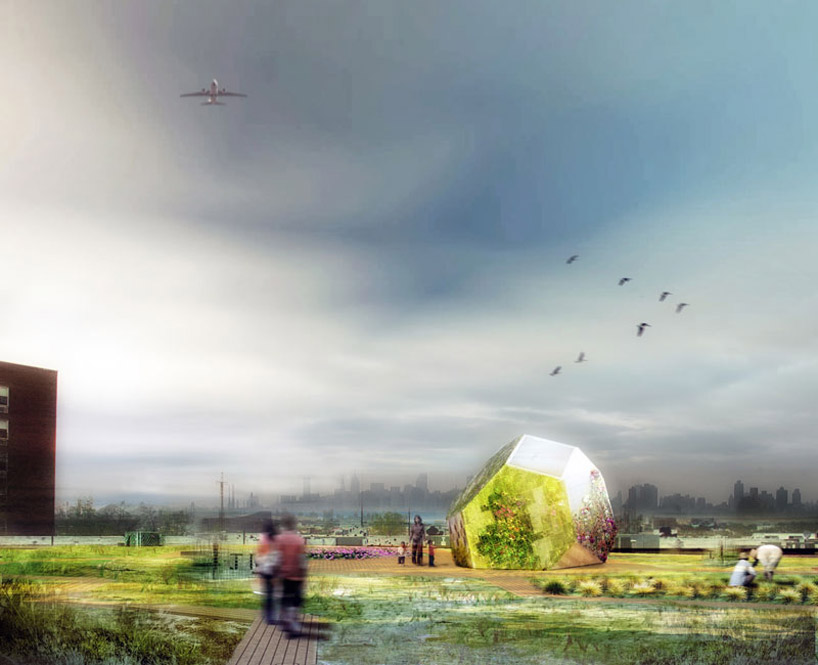 ‘sunnyside up!’ in queens, new york city (under construction)
‘sunnyside up!’ in queens, new york city (under construction)
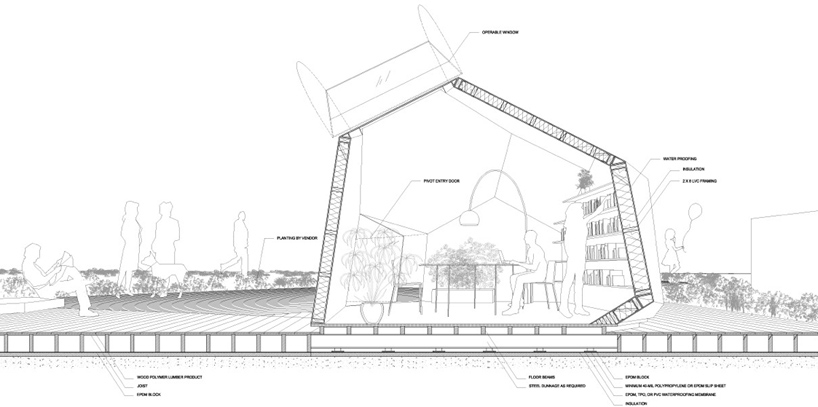 section of ‘sunnyside up!’
section of ‘sunnyside up!’
is there any designer and/or architect from the past, you appreciate a lot?
FI: yes, we really like to dive into a figure. we looked at aldo van eyck at some point, at louis kahn…
and those still working / contemporary?
JL: I’m very much interested in toyo ito. I very much admire him — being this very important student, and teacher. throughout his half century career he was able to evolve in every decade. he did something that’s clearly different all the time. he always explores, so there’s always youth, great energy in his work.
FI: rem (koolhaas) was always a big example for me being dutch. and then I worked at SANAA for a long time and they’ve been very very influential in my thinking. moving from europe to japan and then to the US we encountered a whole new range of people, there’s not a single sort of current contemporary.
what advice would you give to the young?
FI: a very common advice — just follow your instincts and do things. you cannot figure things out by purely thinking. it’s just really a matter of getting your hands dirty and try. we quite quickly got this um young architects program MoMA thing and people started to look at us while we were still trying to learn to fly (so to say). we had to be comfortable with that and I think that failing in public is maybe fine.
JL: take it very serious meanwhile you’re working on it but don’t take it serious at all once you’ve done it. don’t worry about what people say afterwards, but take it very seriously when you’re designing it.
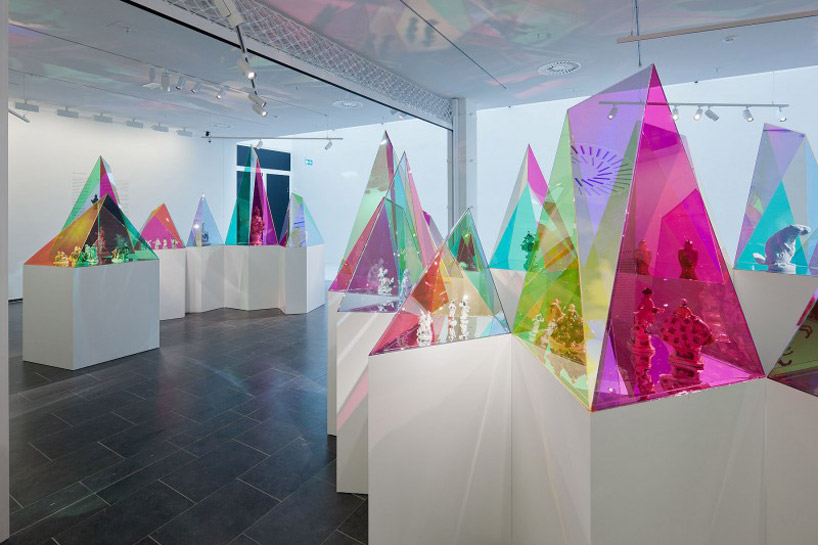 ‘meissen’ installation display, amersfoort, the netherlands, 2011
‘meissen’ installation display, amersfoort, the netherlands, 2011
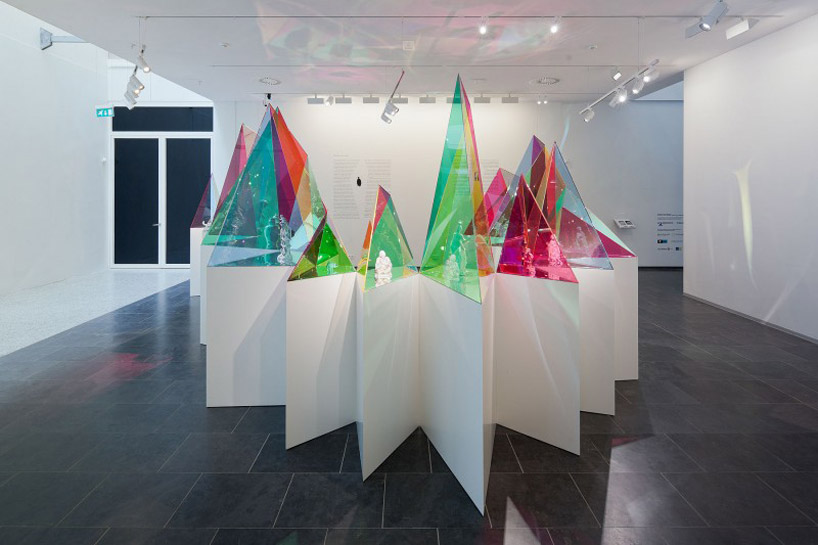 ‘meissen’ installation display, amersfoort, the netherlands, 2011
‘meissen’ installation display, amersfoort, the netherlands, 2011
designboom asks SO-IL ‘what are you afraid of regarding the future?’ video © designboom
what are you afraid of regarding the future?
FI: the world collapsing? death?
maybe you are not afraid of anything.
JL: there is a sort of growing pain of globalization. I moved around quite a bit throughout my life, coming from china (obviously in my life time, china has transformed so much). I feel that in the post-globalized world, there are a lot of fears. countries is dealing with the issue between globalization and specificity, their national identity and adjusting their culture and economical system to that. I do sense in many geographic areas that there is this longing for specificity. longing for some nostalgia, a romantic kind of return to our roots or a better past, but I truly believe that we need to progress and we need to forge ahead. there are growing pains we have to deal with but that’s our only way forward. it’s one world. we all need to be brave and keep trying.
FI: a lot of people are going back, no? everywhere.
JL: I think there are a lot of people, a lot of countries, even designers that are in this fearful mode rather than behaving ‘it’s painful but let’s do it’. we can only go forward.
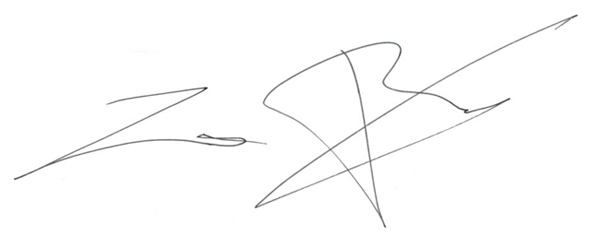
—
florian idenburg and jin liu of SO-IL
jing liu (1980) and florian idenburg (1975) founded the new york-based studio SO-IL (solid objectives – idenburg liu) in 2008. they have worked on diverse projects ranging in scale from a series of prints for the guggenheim museum to the master plan of a cultural campus in shanghai, china. their work has received numerous awards including MoMAPS1 young architects program, as well as the AIA young practices award; and has been exhibited at the guggenheim museum and MoMA in new york, the los angeles forum for architecture and urbanism, sutdio-X in beijing and kunsthal KAdE in the netherlands.
florian idenburg holds a MSc. in architecture from delft university of technology. he gained eight years of experience working with the pritzker prize winning firm of kazuyo sejima + ryue nishizawa / SANAA. he has previously held teaching positions at harvard, columbia, princeton and the university of kentucky.
jing liu holds a master of architecture from tulane university school of architecture in new orleans. she has worked for new york-based kohn pedersen fox and starwood and is currently teaching at columbia university’s GSAPP and faculty at parsons the new school of design in new york.
ARCHITECTURE INTERVIEWS (263)
SO – IL (39)
PRODUCT LIBRARY
a diverse digital database that acts as a valuable guide in gaining insight and information about a product directly from the manufacturer, and serves as a rich reference point in developing a project or scheme.
